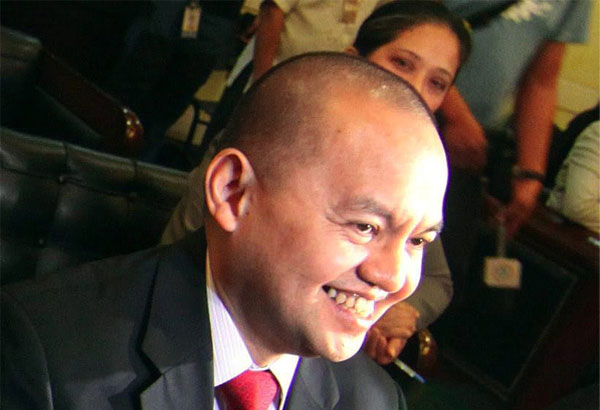Leonen: Gov't has 'expanded' martial law, suspension of habeas corpus

Supreme Court Associate Justice Marvic Leonen said on Wednesday that the blanket arrest orders of the government effectively expanded the scope of martial law and the suspension of the writ of habeas corpus. The STAR/File
MANILA, Philippines — Supreme Court Justice Marvic Leonen on Wednesday said that allowing the arrest of suspected rebels wherever they are in the Philippines may have expanded the scope of the martial law declaration of President Rodrigo Duterte.
During the second day of the oral arguments on petitions that seek to nullify the declaration of army rule in Mindanao, Leonen told Solicitor General Jose Calida that the doctrine that allowed the arrest of suspected rebels wherever they are in the Philippines, which the government follows, had effectively expanded Duterte’s martial law and suspension of the writ of habeas corpus.
“So, therefore you have expanded martial law and the suspension of the writ not only in Mindanao but with that interpretation you are extending it to Luzon, in the Visayas, and the Batanes everywhere where the perpetrators may be found,” Leonen told Calida after the government lawyer admitted that the arrest orders of the government against suspected rebels were “enforceable” in the whole country.
Calida is defending Proclamation 216 of Duterte that placed entire Mindanao under military rule on May 23 following heavy clashes between security forces and Islamist fighters seeking to establish a so-called Islamic State of Iraq and Syria (ISIS) stronghold in southern Philippines.
Calida: Rebellion a continuing offense
Calida said that since rebellion is a continuing offense, arrest orders against its perpetrators are enforceable in any part of the Philippines.
“In the context of the proclamation of martial law, the crime is rebellion. It is a continuing offense. The perpetrators of the rebellion were identified in these arrest orders. If they hide, then they are given the authority to capture them because it is a continuing offense,” he told the 15-member tribunal hearing the arguments of government lawyers and petitioners.
Leonen said that maybe the rebellion in Marawi City was not the rebellion envisaged by the Constitution as it resulted in arrest orders with blanket authority.
“Maybe this is not the rebellion that is envisaged in this provision of the Constitution because it is the kind of hostilities where the army or the police need to detain someone in order to continue with the mission,” the justice said.
He added that the legal doctrine the government was relying on was a jurisprudence established during the martial law period under former strongman Ferdinand Marcos.
Leonen said that Duterte himself said that his martial law would be different from that of Marcos.
“The president said that this is not a martial law of Marcos. This is martial law Duterte-style. But it seems it is founded on an interpretation of a martial law jurisprudence,” he said.
Calida answered that until this jurisprudence is overturned the government would have to follow it.
Leonen replied: “And the court that can change it is this court.”
- Latest
- Trending





























